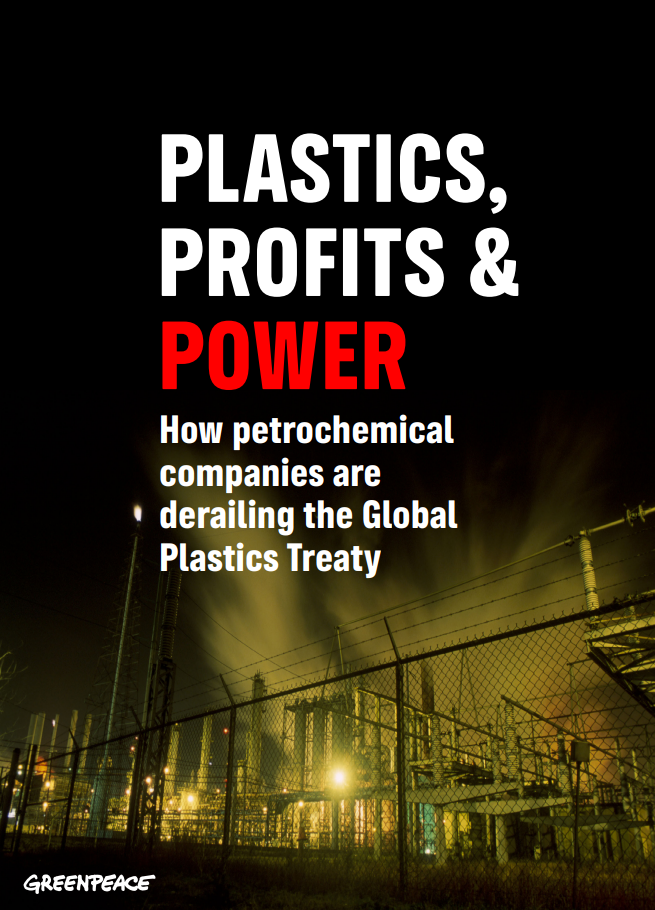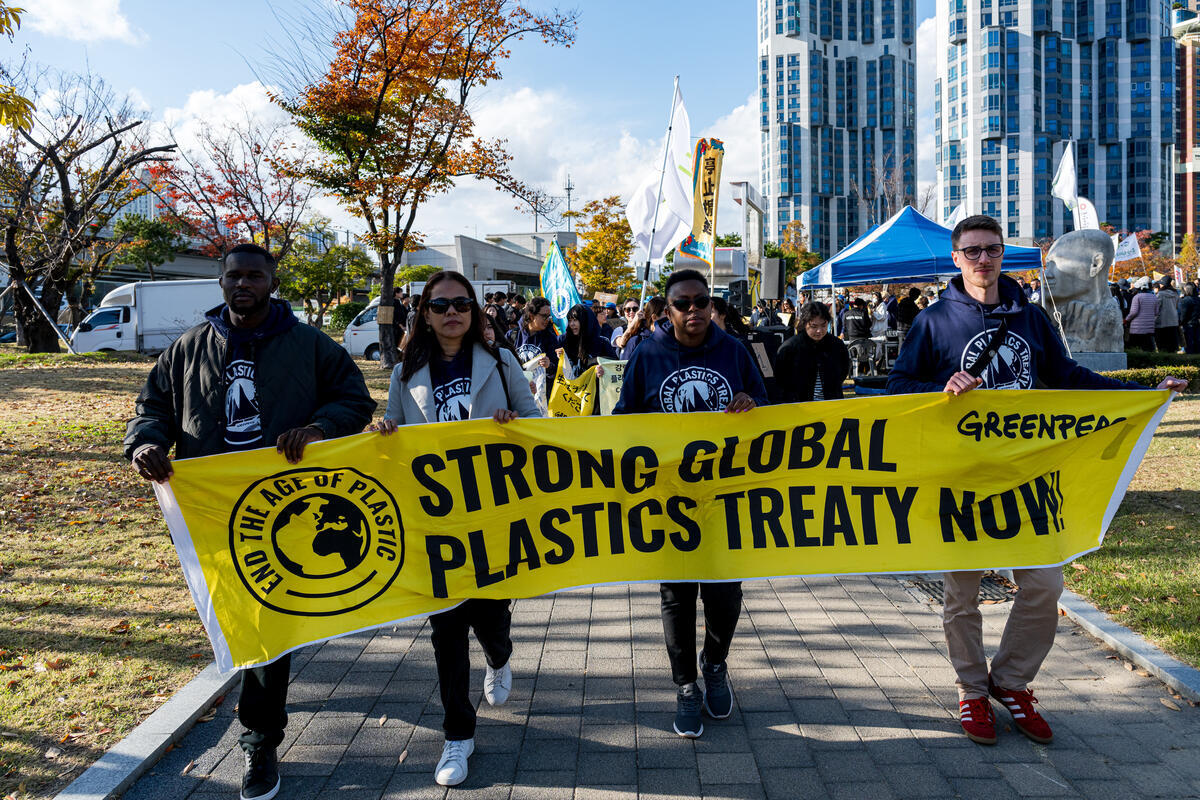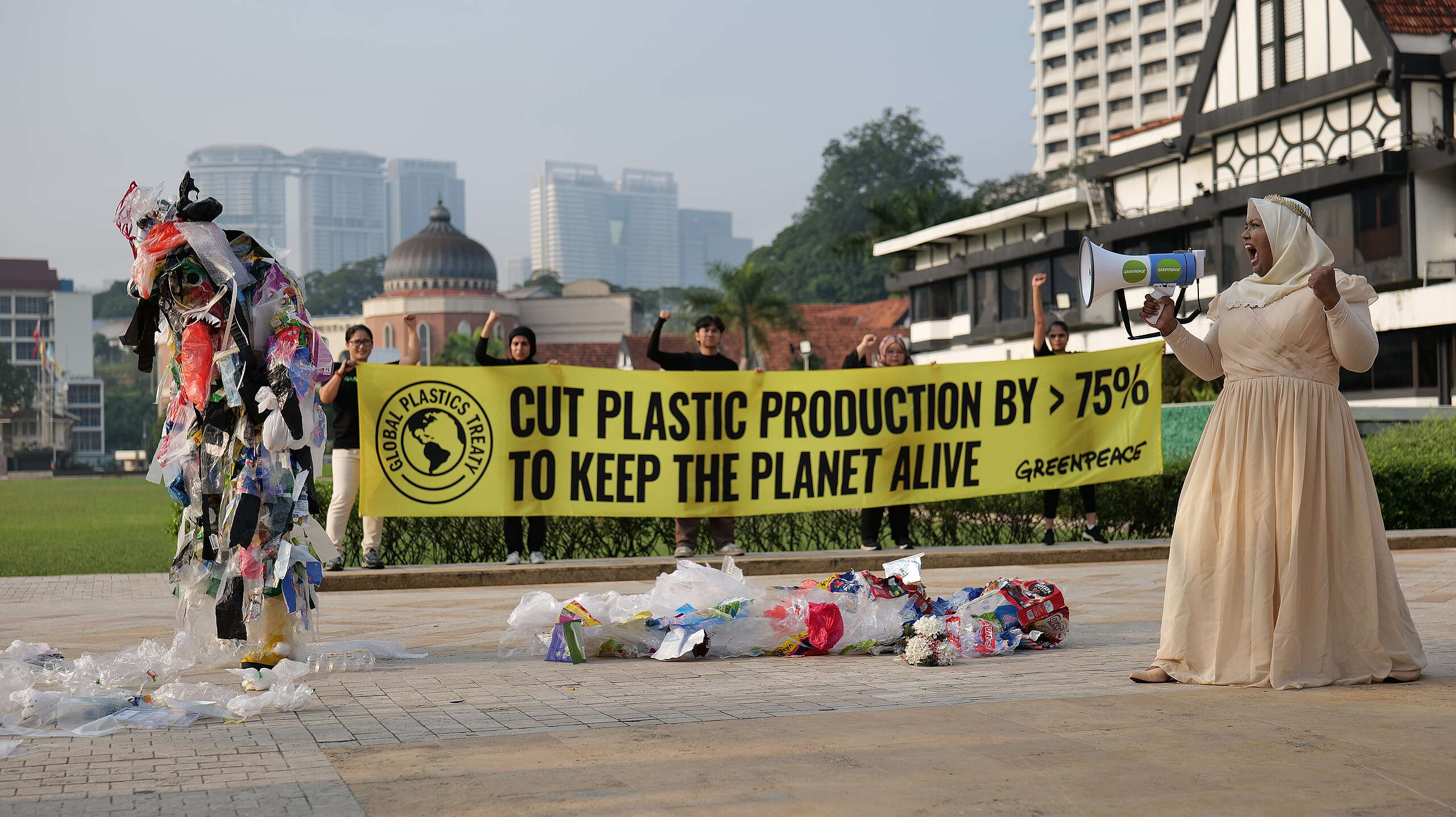How petrochemical companies are derailing the Global Plastics Treaty.

Overview
Plastics, Profits & Power exposes how fossil fuel and petrochemical companies are working to derail the Global Plastics Treaty, the world’s most ambitious effort to end plastic pollution.
While lobbying heavily to weaken the treaty, corporations like ExxonMobil, Shell, Dow and INEOS have expanded plastic production, locking in decades of future pollution.
Industry lobbyists now outnumber many national delegations, scientists and Indigenous groups, and their presence creates a profound conflict of interest.
Without decisive reforms, the treaty risks being captured by the very polluters it is meant to regulate. Greenpeace calls on the UN to ban fossil fuel lobbyists from the talks, embed strong conflict of interest safeguards, and ensure meaningful participation for frontline communities and independent experts.
Executive summary
Plastic pollution is harming health, accelerating social injustice, destroying biodiversity and fuelling the climate crisis. Yet without urgent intervention, plastic production could triple by 2050. The Global Plastics Treaty, entering its final negotiation round in August 2025, represents our best – and possibly only – chance to change course.
But industry data obtained by Greenpeace UK reveals that since the treaty process began in November 2022, just seven of the fossil fuel and petrochemical companies sending lobbyists to the talks – Dow, ExxonMobil, BASF, Chevron Phillips, Shell, SABIC and INEOS – have produced enough plastic to fill an estimated 6.3 million rubbish trucks. That’s five and a half trucks every minute.
Over the same time period, they have also expanded their capacity to make new plastic by 1.4 million tonnes, locking in future plastic pollution. The UK’s biggest plastic producer, INEOS, has increased its production capacity by over a fifth since November 2022.
This report exposes how some of the world’s largest petrochemical companies are expanding production while flooding the treaty negotiations with hundreds of lobbyists in an effort to weaken ambition and shift attention onto false solutions like chemical recycling.
With plastics increasingly central to Big Oil’s growth model, lobbyists have attempted to dominate the negotiations while positioning themselves as partners in solving the plastics crisis. Lobbying to weaken the treaty is not a side issue – it is a core business strategy.
Dow and ExxonMobil – two of the world’s biggest single-use plastics producers – have sent the largest number of their own delegates to the talks, as well as being heavily represented by industry associations. This reveals how those with the most to lose from meaningful regulation are working hardest to obstruct and undermine it.
Over the course of the negotiations these firms have made staggering profits from plastic production. Dow alone has earned an estimated $5.1 billion from plastics – while sending at least 21 lobbyists to the treaty negotiations.
There is a fundamental contradiction at the heart of the Global Plastics Treaty negotiations: the same fossil fuel and petrochemical companies that profit from plastic pollution are being allowed to shape the treaty designed to end it.
To protect the integrity of the Global Plastics Treaty, Greenpeace UK, Greenpeace International and our allies are calling on the UN to:
- Ban fossil fuel and petrochemical lobbyists from plastics treaty negotiations and future Conferences of the Parties.
- Embed a strong conflict of interest policy in the treaty text.
- Ensure meaningful participation for scientists, Indigenous Peoples, impacted communities and public interest groups.
It’s time to kick polluters out of negotiations and ensure the treaty delivers on its promise – to end plastic pollution for good.


